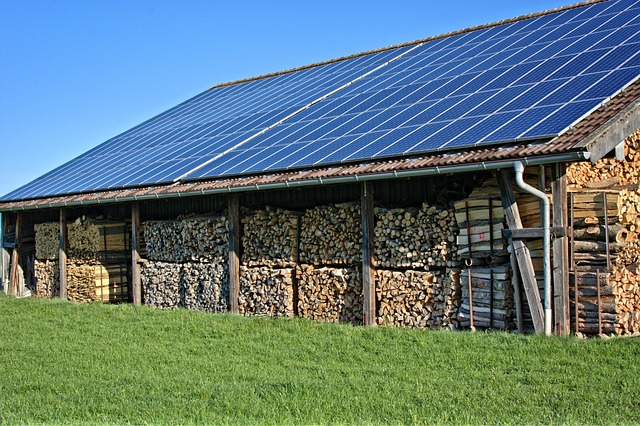The Economic Benefits of Investing in Solar Energy
As the world grapples with the realities of climate change and the pressures of depleting fossil fuel reserves, renewable energy sources are gaining increasing importance in our economies. Among these, solar energy stands out as a leader. With the potential to not only mitigate environmental impact but also stimulate economic growth, investing in solar energy offers a multitude of benefits for individuals, businesses, and governments alike.
Understanding Solar Energy
Solar energy is harnessed from sunlight using photovoltaic cells that convert sunlight directly into electricity. It can also be captured through solar thermal systems, which use sunlight to heat water or air. These technologies have evolved over the years, leading to significant cost reductions and efficiency improvements, making solar energy an increasingly viable option for energy needs.
Job Creation and Economic Growth
One of the most significant economic benefits of investing in solar energy is job creation. The solar industry has rapidly expanded in recent years, generating millions of jobs across various sectors. From manufacturing and installation to maintenance and research, the solar energy sector offers employment opportunities at various skill levels. In fact, the U.S. Bureau of Labor Statistics projects that solar installer jobs will grow by 63% from 2018 to 2028, much faster than the average for all occupations.
Furthermore, the influx of investment into solar energy projects stimulates local economies. When solar farms are established, they require local workforces for construction, operation, and maintenance. This not only provides jobs but also promotes economic activity in surrounding communities, as these workers spend on housing, food, and other services. The ripple effect of job creation continues as businesses that support solar projects—like suppliers of raw materials and technology—also grow in response to demand.
Reduced Energy Costs
Investing in solar energy can lead to significant savings on energy costs, both for individuals and businesses. By producing their own electricity, solar energy users can reduce their dependency on the grid and avoid fluctuating energy prices. In many regions, homeowners are already experiencing lower utility bills as a result of making the switch to solar.
Businesses, particularly those with high energy consumption, can realize even more substantial financial benefits. The investment in solar systems can reduce overhead costs, freeing up funds for other operational needs. Additionally, companies can leverage federal, state, and local incentives, which can offset installation costs significantly. Solar tax credits and renewable energy grants serve as additional catalysts for business investments in solar technology.
Energy Independence and Security
Investing in solar energy contributes to energy independence, which can enhance a nation’s economic stability. Countries that invest in their renewable energy sources reduce their reliance on imported fossil fuels, insulating themselves from international market volatility and geopolitical tensions that can disrupt supply chains. By generating power domestically, nations can create a more stable and controllable energy landscape.
Moreover, a diversified energy portfolio inclusive of solar energy aids in energy security. A mix of energy sources can mitigate risks associated with outages caused by extreme weather events or supply disruptions. Regions that successfully incorporate solar energy into their infrastructure are better prepared to maintain a stable energy supply during crises.
Environmental Economic Impact
The economic benefits of solar energy extend beyond direct financial metrics. The reduction of greenhouse gas emissions and pollution associated with fossil fuel use presents a significant financial advantage in terms of public health and environmental protection. Fewer emissions translate into better air quality, which leads to lower healthcare costs for society at large. Studies have shown that transitioning to renewable energy sources can save billions in healthcare costs related to pollution-induced illnesses.
Moreover, investing in solar energy helps combat climate change, which poses a variety of economic risks, including damage to infrastructure, loss of biodiversity, and disruption of agriculture. Mitigating these impacts through renewable energy solutions ultimately protects economies from potential losses associated with climate-related disasters.
Innovation and Technological Advancement
The solar energy sector is a hub of innovation, constantly evolving with advancements in technology. Government investment in solar energy often drives further research and development, resulting in new technologies that can enhance energy capture, storage, and efficiency. Breakthroughs in battery technology, like improved solar storage solutions, enable users to harness energy during non-sunny hours, optimizing the use of solar power.
Investments in solar energy also foster advancements in related fields such as smart grid technology and energy efficiency. These developments promote sustainable energy practices and contribute to the overall economic ecosystem. Countries and companies that position themselves as leaders in solar technology stand to gain competitive advantages both at home and globally.
Long-Term Financial Stability
Investing in solar energy can provide long-term financial stability and predictability for both households and businesses. Once a solar system is installed, the costs associated with generating energy can stabilize over time. Homeowners benefit from predictable energy costs, making budgeting easier and reducing the impact of rising utility rates. In many regions, solar energy systems can increase property value, providing homeowners not only savings but also potential financial returns when selling their homes.
For businesses, the long-term savings and predictability of energy costs can lead to more stable profit margins, making forecasting and strategic planning less susceptible to market variances. The financial framework that solar energy creates encourages further investments, enabling businesses to allocate resources to growth and development initiatives.
The Role of Government Policy
Government policies play a critical role in encouraging investment in solar energy. Initiatives such as tax credits, rebates, and grants stimulate the market by decreasing the barriers to entry for consumers and businesses. By creating an environment that is conducive to renewable energy investment, governments can accelerate the shift away from fossil fuels and toward sustainable growth.
Moreover, in regions where solar energy integration is prioritized, municipal leaders can foster a favorable regulatory landscape that supports communal solar projects and energy-sharing initiatives. This encourages participation at the community level, making solar energy benefits more accessible to all societal segments, including low-income households who might otherwise be neglected by traditional energy markets.
Conclusion
Investing in solar energy presents a myriad of economic benefits that extend beyond mere cost savings. From job creation and long-term financial stability to energy independence and environmental protection, solar energy stands as a catalyst for sustainable economic growth. As the world transitions toward a greener future, embracing solar energy is not just an environmentally responsible choice; it is a strategically sound economic decision.
Governments, businesses, and individuals alike have a vested interest in maximizing the potential of solar energy. By doing so, we not only embrace the innovation that comes from renewable technology but also invest in a cleaner, more secure economic future.



